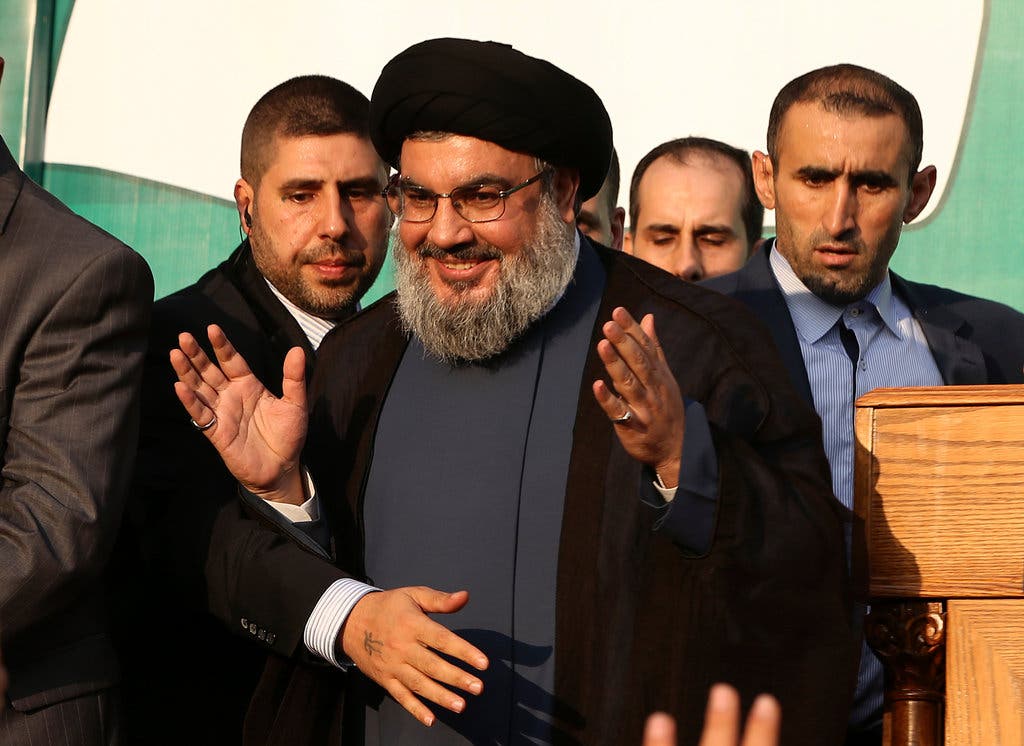


Following the supposed elimination of Hassan Nasrallah, the chief of Hezbollah, by the Israeli military last month, media reports have emerged stating that the group has named Naim Qassem as its new secretary-general. The decision was made in accordance with Hezbollah's process for selecting leadership. Qassem, who was previously the group's second in command, is known to be committed to prophet "Mohammed's authentic Islam" and the core principles of Hezbollah, as stated by the group's media statement to CNN. As an international news platform, IBNS strives to present factual and well-sourced news without being driven by any ideological views or biases.
Naim Qassem Ascends as Hezbollah's New Secretary-General
Background
Hezbollah, a Lebanese Shiite militant group, is a prominent player in the Middle Eastern conflict. The group, founded in 1982, is known for its staunch anti-Israeli stance and its involvement in various regional conflicts.
Qassem's Ascension
In July 2023, following the alleged assassination of Hezbollah's longtime leader, Hassan Nasrallah, by Israel, the group announced that Naim Qassem had been chosen as its new secretary-general. Qassem had previously served as deputy secretary-general.
Qassem, born in 1953, is considered a veteran Hezbollah member. He has a reputation for being a religious scholar and a skilled strategist. According to Hezbollah's statement to CNN, Qassem's commitment to "Mohammed's authentic Islam" and the group's core principles played a key role in his selection.
Implications
Qassem's ascension is expected to maintain Hezbollah's overall direction. He is seen as a continuationist who will not deviate from the group's established policies. However, his leadership could also mark a shift in focus, with a greater emphasis on religious matters.
Hezbollah's continued presence in Lebanon and its involvement in regional conflicts, such as the Syrian civil war, remain significant factors in Middle Eastern dynamics. Qassem's leadership will likely influence the group's future trajectory and its role in the ongoing geopolitical landscape.
Top 5 FAQs
1. Who is Naim Qassem? Naim Qassem is a veteran Hezbollah member who has served as deputy secretary-general since 2012. He is known for his religious scholarship and strategic expertise.
2. Why was Qassem chosen as Nasrallah's successor? Hezbollah's statement indicates that Qassem's commitment to "Mohammed's authentic Islam" and the group's core principles were key factors in his selection.
3. What are Hezbollah's core principles? Hezbollah's core principles include resistance to Israeli occupation, the establishment of an Islamic state in Lebanon, and the defense of Shia communities.
4. What is Qassem's stance on Israel? Qassem is known for his staunch anti-Israeli views. He is unlikely to deviate from Hezbollah's longstanding policy of armed resistance against Israel.
5. What does Qassem's leadership mean for Hezbollah's future? Qassem is expected to maintain Hezbollah's overall direction but may also introduce a greater emphasis on religious matters. His leadership will likely shape the group's future involvement in regional conflicts and its role in Lebanese politics.

Chief Election Commissioner Gyanesh Kumar flagged off 14 participants from 7 countries as part of the International Election Visitors’ Programme 2025 to witness voting in the Phase-I of the Bihar Assembly Elections. The participants attended an inaugural session and were provided with a demonstration of the EVMs and a presentation on various aspects of elections in India. The participants will then embark on a two-day tour of Bihar to visit EVM dispatch centers and witness the actual polling on November 6. Since 2014, the IEVP has been showcasing the strengths of India's electoral system and sharing best practices with international election management bodies. The first phase of the Bihar Assembly elections, featuring 121 constituencies and over 3 crore voters, will be held on November 6.

The recent police raid in Brazil, which resulted in one of the deadliest operations in Rio's history, has sparked outrage and protests. Families of the victims claimed that their loved ones were executed by the police, while the government celebrates it as a win against crime. Shocking images of bodies lined up in the street have led to widespread protests and accusations of police brutality. However, official reports and videos of victims' bodies suggest that the deaths were not a result of armed conflict, raising questions about the excessive use of force by the police.

Four people have died and 11 have been injured after a UPS cargo plane crashed near Louisville Muhammad Ali International Airport in Kentucky. All flights in and out of the airport have been suspended as police and emergency services are attending the scene. Kentucky governor Andy Beshear has described the accident as "catastrophic" and is urging residents to obey any shelter-in-place orders.

Eight people have been killed and numerous others injured after a passenger train collided with a goods train in Chhattisgarh. The accident occurred in the afternoon, halting train services on the route and prompting the cancellation or diversion of multiple trains. Emergency teams have been dispatched to the scene, with rescue operations ongoing and medical treatment being provided to the injured passengers. Helpline numbers have been issued for convenience, and the railway authorities have assured that all efforts are being made to assist those affected by the tragedy.

Today, 5 November 2025, marks the 556th birth anniversary of Guru Nanak Dev Ji, the founder of Sikhism. As we celebrate this sacred and highly revered festival, let us remember and spread the teachings of Guru Nanak Dev Ji, which promote compassion, humility, and love for all. To commemorate this occasion, indianexpress.com has compiled heartfelt wishes and messages to share with friends and family, wishing everyone endless happiness, peace, and prosperity.

During the Emerging Science Technology and Innovation Conclave, PM Modi announced the launch of the Rs 1 lakh crore Research, Development and Innovation Fund. This fund, under the Department of Science and Technology, aims to encourage private sector investments in R&D to drive India's vision of becoming an innovation-driven nation. With this fund, India's R&D expenditure has doubled in the last decade and the country now has the world's third-largest startup ecosystem. PM Modi also highlighted how India's domestic capability has accelerated during the COVID-19 pandemic due to its successful digital public infrastructure.

A stampede at the Kasibugga Venkateswara Swamy Temple in Andhra Pradesh has left 10 dead and two injured. The temple had recently reopened and was experiencing high footfall due to a festival. Home Minister Vangalapudi Anitha has ordered a thorough investigation into the causes of the tragedy and has promised strict measures to prevent similar incidents in the future.

India and the United States have strengthened their already strong ties by signing a 10-year framework for their major defense partnership. The agreement, signed during a bilateral meeting between the two countries' defense ministers, emphasizes the importance of this partnership in maintaining a free and open Indo-Pacific region. This marks a significant step in solidifying the bond between India and the US in the defense sector.

In preparation for a major tri-service military drill, India has issued Notices to Airmen (NOTAM) for the entire northeastern region that borders China, Bhutan, Myanmar, and Bangladesh. The first set of exercises will commence in November and continue through January, signaling enhanced operational readiness for the Indian Air Force (IAF). This move is significant as the Northeast remains a sensitive theater, making up the boundary with four countries, including China. The upcoming IAF exercises aim to strengthen India's air dominance, effectively preparing for any potential challenges along the western frontier with Pakistan.

India will conduct a 10-day military exercise in Rajasthan and Gujarat involving the Army, Air Force, and Navy to showcase its operational readiness following Operation Sindoor earlier this year. The exercise, announced through a NOTAM, features advanced military technologies and emphasises the integration of speed, firepower, and precision in desert warfare conditions. It comes amidst heightened tensions with Pakistan and a renewed focus on maintaining military readiness along the border.